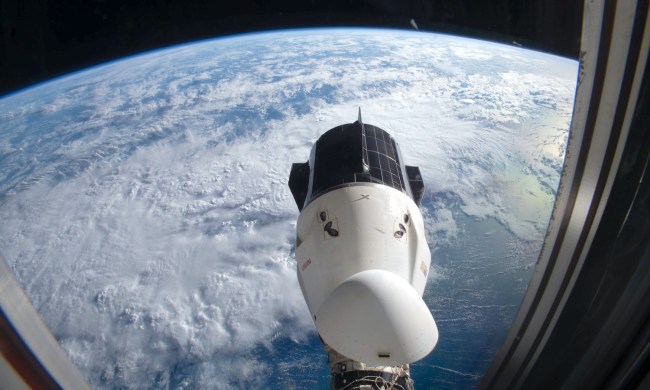SpaceX postponed the planned deployment of 60 Starlink satellites on Wednesday night, May 15, due to strong upper-altitude winds.
The announcement came at around 11 p.m. ET on Wednesday evening, just 15 minutes before SpaceX’s Falcon 9 rocket was due to lift off from Cape Canaveral Air Force Station in Florida.
Standing down today due to excess upper level winds. Teams are working toward tomorrow’s backup launch window, which opens at 10:30 p.m. EDT
— SpaceX (@SpaceX) May 16, 2019
Another launch attempt will be made at around the same time on Thursday, the Elon Musk-owned space company said.
The mission, when it happens, will mark the first major deployment of SpaceX’s Starlink satellites designed for the provision of low-cost, high-speed global internet to unserved or underserved locations around the world.
Sixty Starlink satellites have been packed into the nose cone of the SpaceX Falcon 9 rocket that’s waiting to launch. Over the next eight years, the company plans to deploy around 12,000 of the satellites into low-Earth orbit to create its widespread broadband network as part of a project said to be costing the company $10 billion.
Its first goal is to deploy 4,425 Starlink satellites into low-Earth orbit at an altitude of between 690 miles (1,110 km) and 823 miles (1,325 km). These will act as the backbone of Starlink’s internet service.
An additional 7,518 additional satellites will be deployed at a lower orbit of between 208 miles (335 km) and 215 miles (346 km) above Earth, and these will be used to boost capacity and reduce latency, especially in heavily populated places.
When the Federal Communications Commission agreed to the plan last year, it stipulated that SpaceX must launch 50 percent of its proposed satellites within six years and all of them by 2027, unless a waiver is granted.
The private space company has so far deployed just two Starlink satellites, both for test purposes. The February 2018 mission was deemed a success and paved the way for SpaceX to prepare for this week’s much bigger deployment.
SpaceX faces tough competition in the space-based internet race, with the likes of Facebook, Amazon, and SoftBank-backed OneWeb each working on similar projects.
Elon Musk tweeted last weekend that “much will likely go wrong on 1st mission.” If the windy weather that scuppered Wednesday’s launch effort is the worst thing that happens to Starlink, the SpaceX boss will be a very happy man, indeed.


